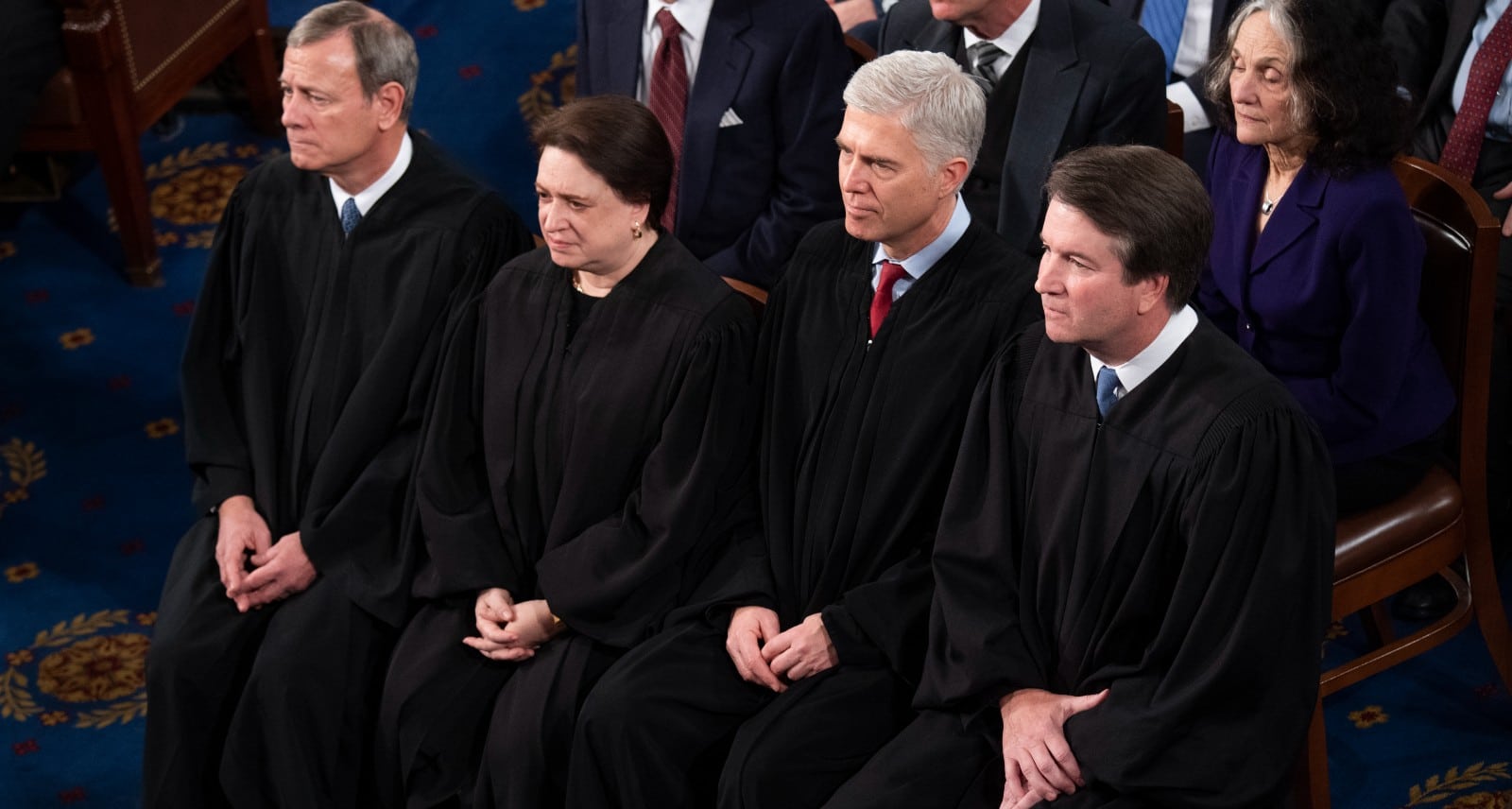OPINION: This article may contain commentary which reflects the author's opinion.
The U.S. Supreme Court on Friday rejected the challenge to the constitutionality of a federal law that bans the possession of a gun by someone who has been the subject of a domestic violence restraining order.
The vote is 8-1 with Justice Clarence Thomas dissenting.
“The court holds that when an individual has been found by a court to pose a credible threat to the physical safety of another, that individual may be temporarily disarmed consistent with the Second Amendment,” SCOTUS Blog reported.
Chief Justice John Roberts wrote that, “Since the founding, our Nation’s firearm laws have included provisions preventing individuals who threaten physical harm to others from misusing firearms. As applied to the facts of this case, Section 922(g)(8) fits comfortably within this tradition.”
Discussing the application by the lower courts of the Supreme Court’s decision in New York State Rifle & Pistol Association v. Bruen, Roberts writes, “Some courts have misunderstood the methodology of our recent Second Amendment cases. These precedents were not meant to suggest a law trapped in amber.”
Otherwise, Roberts explained, the Second Amendment would only protect “muskets and sabers.”
“Why and how the regulation burdens the right are central to this inquiry. For example, if laws at the founding regulated firearm use to address particular problems, that will be a strong indicator that contemporary laws imposing similar restrictions of similar reasons fall within a permissible category of regulations.”
The Supreme Court has been busy lately.
The nation’s highest court made headlines last week when it unanimously rejected a challenge to the Food and Drug Administration’s authority to regulate an abortion-related medication.
Justices ruled 9-0 that challengers lacked standing to oppose the FDA’s regulatory approval process of the abortion drug mifepristone, in a decision seen as a victory for the Biden administration and abortion rights activists, Fox News reported.
“Under Article III of the Constitution, a plaintiff’s desire to make a drug less available for others does not establish standing to sue. Nor do the plaintiffs’ other standing theories suffice,” wrote Justice Brett Kavanaugh, who authored the unanimous opinion.
“The plaintiffs have sincere legal, moral, ideological, and policy objections to elective abortion and to FDA’s relaxed regulation of mifepristone,” he said. “But under Article III of the Constitution, those kinds of objections alone do not establish a justiciable case or controversy in federal court,” he added.
The justices remanded the case back down to the Fifth Circuit, consistent with the Court’s opinion.
The case stemmed from a set of lawsuits filed by a group of healthcare associations, Alliance for Hippocratic Medicine, who claimed that the drug has a high rate of complications.
Erin Hawley, counsel for the civil rights firm Alliance Defending Freedom, who argued the case against the FDA, said, “We are disappointed that the Supreme Court did not reach the merits of the FDA’s lawless removal of commonsense safety standards for abortion drugs.”
She added: “Nothing in today’s decision changes the fact that the FDA’s own label says that roughly one in 25 women who take chemical abortion drugs will end up in the emergency room — a dangerous reality the doctors and medical associations we represent in this case know all too well. The FDA recklessly leaves women and girls to take these high-risk drugs all alone in their homes or dorm, without requiring the ongoing, in-person care of a doctor.”
“While we’re disappointed with the court’s decision, we will continue to advocate for women and work to restore commonsense safeguards for abortion drugs — like an initial office visit to screen for ectopic pregnancies. And we are grateful that three states stand ready to hold the FDA accountable for jeopardizing the health and safety of women and girls across this country,” she noted further.
The justices ruled that the group could not prove that the FDA’s relaxed regulatory environment is actually causing harm, thereby removing their standing to file the suit.
Fox News noted further:
In overturning Roe v. Wade in June 2022, the Supreme Court ruled in Dobbs v. Jackson Women’s Health Organization that the U.S. Constitution does not guarantee the right to an abortion and that the matter may be decided by the states.
In the aftermath, 14 states have banned abortion at all stages of pregnancy, with some exceptions, and two others have banned abortion once a fetal heartbeat is detected, which is at around six weeks of gestation.
Mifepristone is taken along with misoprostol to create the two-drug combination known as medication abortion or the “abortion pill.”
